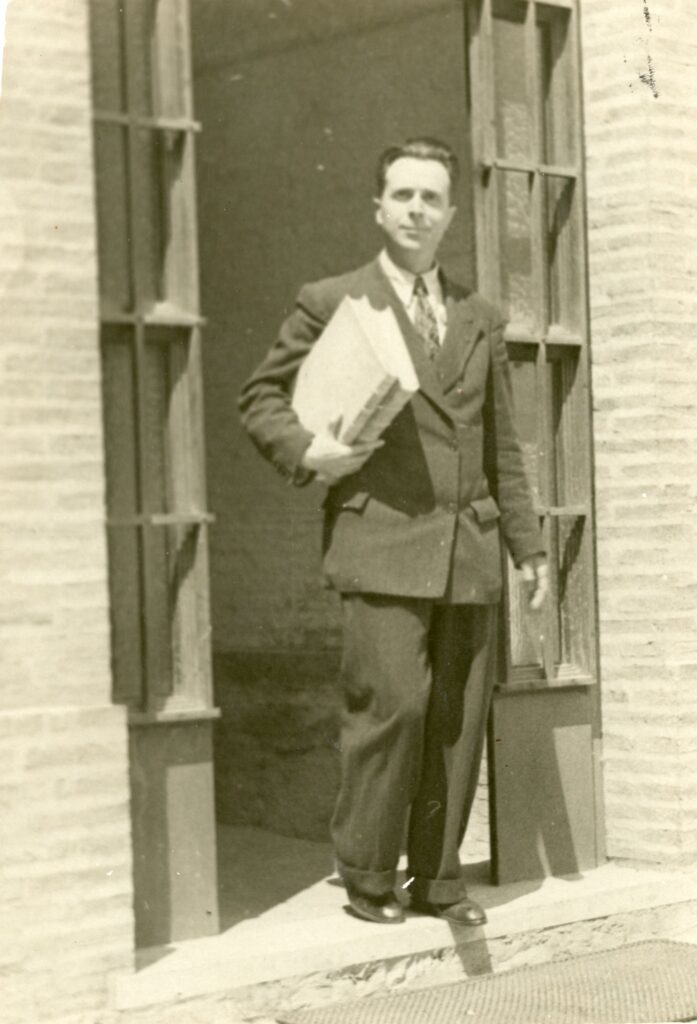I couldn’t understand how anyone could give life to a young person, have him worn out by studies and sacrifices, in order to prepare him for an operation, in which he would have to kill strangers, unknown, innocent people and in turn, he would be killed by others to whom he had done no harm. I saw the absurdity, the stupidity and above all the sin of war: a sin made more acute by the excuses used to justify it and by the futility with which it was decided.
The Gospel, long meditated upon, taught me that to do good, not to kill was a fundamental duty; to forgive, not to take revenge. And reason itself gave me a sense of how absurd it was to engage in a conflict where victory did not go to the just, but to those with more cannons; not to justice, but to violence.
In the “radiant May” of 1915, I was called to arms. […]
So many bugles, speeches and flags! All this only deepened within me the sense of revulsion for those clashes, in which governments, entrusted with the public good, carried out their task by slaughtering the children of the people, hundreds of thousands and by destroying or allowing the destruction of the assets of the nation: the common good.
How stupid it all seemed to me! And I suffered for the millions of people, who were forced to believe in the sanctity of those murders, a sanctity also attested by clerics who blessed the cannons destined to offend God in His masterpiece of creation, to kill God in His image, to carry out fratricide among baptized brothers.
“I saw the absurdity, the stupidity
and above all the sin of war…”

As a recruit I was sent to Modena, where there was a kind of university for the training of warriors and commanders. Coming from the world of Virgil and Dante, the study of certain manuals that taught how to deceive the enemy in order to kill him, had such an effect on me that, in an act of reckless defiance, I wrote in one of them: “Here we are learning the science of imbecility”. I had a very different concept of love of country. I understood it as love and love means service, the pursuit of good, the promotion of well-being, to provide a happier coexistence: for the growth and not for the destruction of life.
But I was young, and I did not understand the reasoning of the older generation, who didn’t really want to understand. They distracted themselves with parades and shouted slogans to numb their senses.
[…]
After a few weeks, having completed my training in Modena, I returned home briefly before departing for the front. I hugged my mother and father, my brothers and sisters (we rarely embraced in my family) and boarded the train. From the train I saw the sea for the first time, much wider than the Aniene River, it felt as though I had fulfilled one of life’s duties. After three days, I reached the trenches along the Isonzo and joined the 111th Infantry Regiment.
The trench. In it, from school I entered life, between the arms of death and cannon fire. […]
If I fired five or six shots, into the air, I did so out of necessity: I never aimed my rifle towards the enemy trenches, for fear of killing a child of God. […]
If all those days spent, in the bottom of the trenches, watching reeds and tufts of brambles and bored clouds and shining blue sky, had been spent working, we would have produced enough wealth to meet all the demands for which the war was being fought. Clearly: but that was reason and war is the opposite of reason.
Igino Giordani
Memorie di un cristiano ingenuo, Città Nuova 1994, pp.47-53
Compiled by Elena Merli
Photo: © ZU via Fotos Públicas




0 Comments